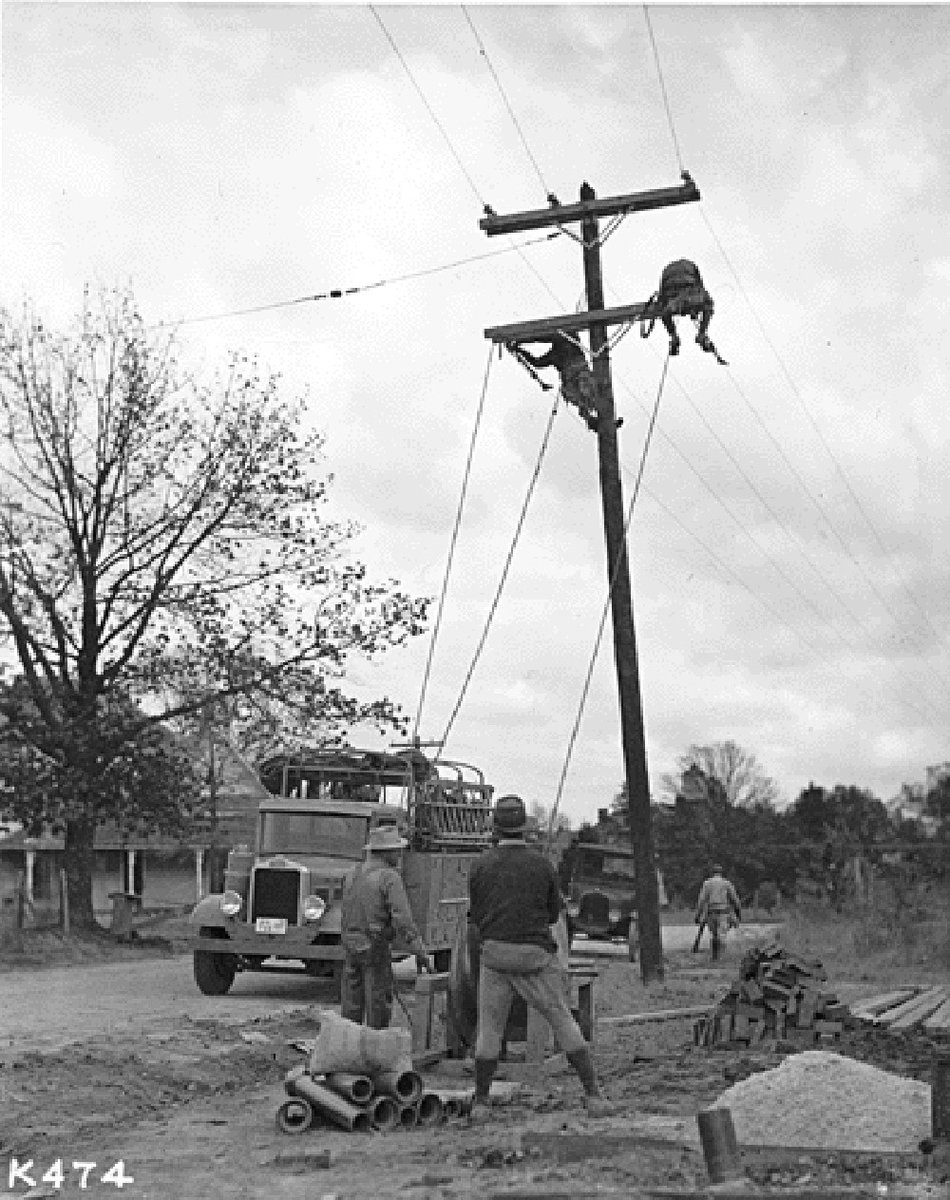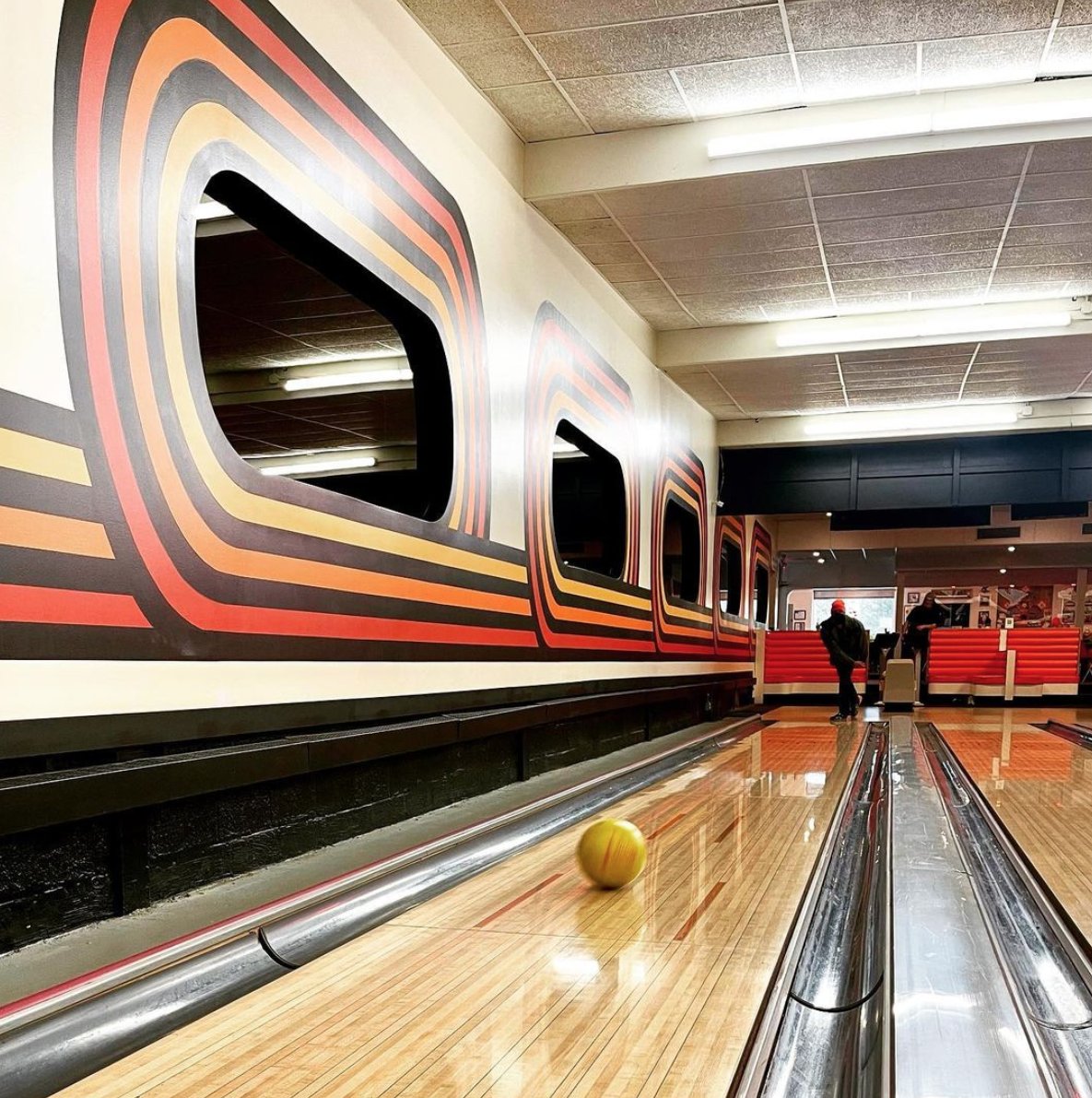
This week on my podcast, I read "All (Broadband) Politics Are Local," my @Medium column about the horrific state of US broadband, the pandemic's worsening of the situation and the near-miraculous shift in US political will for universal fiber:
doctorow.medium.com/all-broadband-… 1/
doctorow.medium.com/all-broadband-… 1/

If you'd like an unrolled version of this thread to read or share, here's a link to it on pluralistic.net, my surveillance-free, ad-free, tracker-free blog:
pluralistic.net/2022/03/07/inf… 2/
pluralistic.net/2022/03/07/inf… 2/
US broadband has been a shitshow since GW Bush killed DSL line-sharing in 2001, which relegated Americans to getting their connectivity from monopolists who divided up the country into non-competing zones like the Pope dividing up the "New World":
dslreports.com/forum/r2379389… 3/
dslreports.com/forum/r2379389… 3/
Since then, US ISPs have embodied @LilyTomlin's immortal phrase, "We're the phone company, we don't care." The failures of US broadband monopolists are truly the stuff of farce. It's not merely @comcast's multiple "Worst Company In America" awards:
theverge.com/2014/8/19/6004… 4/
theverge.com/2014/8/19/6004… 4/
It's not just @Verizon charging you $12/month to rent a modem and also charging you $12/month *not* to rent a modem:
forums.verizon.com/t5/Fios-Intern… 5/
forums.verizon.com/t5/Fios-Intern… 5/
It's not even the egregious bad conduct that led the great state of New York to order @GetSpectrum to leave the state and never come back:
techcrunch.com/2018/07/27/new… 6/
techcrunch.com/2018/07/27/new… 6/
It was the revelation that @FrontierCorp's notoriously poor connections were the result of the company "installing" lines by draping them over shrubs or tying them to trees with twine:
mn.gov/commerce-stat/… 7/
mn.gov/commerce-stat/… 7/

All that was *before* the pandemic turned your internet connection into a gateway to health care, schooling, civics, politics, and for some of us who were lucky to have work-from-home jobs, employment. 8/
*That's* when the failure to regulate American broadband came into sharp focus.
Oh, not for the carriers. 9/
Oh, not for the carriers. 9/
They got billions in PPP loans and Uncle Sucker bought all the junk bonds they cared to sell. They showered their executives in bonuses and their shareholders with buybacks. 10/
But for telco *workers* it was a very different story (the first casualty of monopoly is workers and suppliers; the public is the second casualty). 11/
Charter CEO Thomas Rutledge (an asshole) awarded herself the highest salary of any American CEO, and then refused to pay for field technicians' PPE or hand sanitizer. 12/
Nor did he offer them hazard pay (the company gave them gift certificates for take-out meals, but only from restaurants that had shut down during the pandemic).
pluralistic.net/2020/03/28/unr… 13/
pluralistic.net/2020/03/28/unr… 13/
Charter's back-office staff were banned from working from home, in the name of keeping them under close supervision by their overseers, and then - predictably - Charter offices became superspreader sites.
pluralistic.net/2020/04/22/fil… 14/
pluralistic.net/2020/04/22/fil… 14/
For those of us who relied on broadband, things were also terrible (albeit in different ways). Take my region: Hollywood, where work-from-home for editors, SFX people, and other film personnel was hamstrung by the local monopoly's refusal to invest in decent infrastructure. 15/
It got so bad that a 90-year-old local took out an ad in the @WSJ to chastise @ATT for its grotesquely awful service, igniting a bad publicity firestorm that dragged Ma Bell, kicking and screaming, into installing a few grudging and measly lines:
abc7.com/att-internet-f… 16/
abc7.com/att-internet-f… 16/
But at least we could *get* broadband. America's poorest live in #BroadbandDeserts that map closely to the segregated #RedLining districts established by racist lending policies that prohibited Black people from buying homes in white neighborhoods:
onezero.medium.com/urban-broadban… 17/
onezero.medium.com/urban-broadban… 17/
#DigitalRedlining deprived working people of access to health care and other necessities and it meant that kids of color had to attend Zoom school in the parking lot of the local Taco Bell:
cnn.com/2020/08/31/us/… 18/
cnn.com/2020/08/31/us/… 18/
It's not like America doesn't know how to install fast fiber. There are hundreds of small towns across the country where they set up municipal fiber. 19/
People with muni fiber are the *only* Americans who report satisfaction with their ISPs (except for the lucky few who can get commercial fiber from great small players like @TingInternet).
muninetworks.org/communitymap 20/
muninetworks.org/communitymap 20/
But municipal fiber buildouts have ground to a halt. Why? Well, maybe it has something to do with the telco lobbyists who convinced more than 20 Republican state legislature to ban them:
vice.com/en/article/qkv… 21/
vice.com/en/article/qkv… 21/
As terrible as all this is, there's a silver lining. Finally - *finally!* - there is political will to provide universal fiber. Not 5g (which only works if you lay fiber). Not satellite (which gets slower as more people use it). 22/
Fiber, which is at least *10,000X* faster than cable.
eff.org/deeplinks/2019…
Fiber isn't just thousands of times faster, it's also symmetrical (you can upload and download at the same speed). 23/
eff.org/deeplinks/2019…
Fiber isn't just thousands of times faster, it's also symmetrical (you can upload and download at the same speed). 23/

It's so obviously superior that 5g and satellite boosters have to make their case by arguing that pulling rural wires is some kind of forgotten art lost to the mists of time.
Bullshit. Farmhouses have electricity. Phone lines. Water lines. We know how to pull cable to them. 24/
Bullshit. Farmhouses have electricity. Phone lines. Water lines. We know how to pull cable to them. 24/
In fact, with patient capital, fiber breaks even at densities as low as 2.5 people per square mile.
Telcos don't build fiber, but not because of its lack of profitability. 25/
Telcos don't build fiber, but not because of its lack of profitability. 25/
Frontier's bankruptcy revealed that the company's own data showed that it could make a *billion* dollars providing fiber to millions of underserved households.
eff.org/deeplinks/2020… 26/
eff.org/deeplinks/2020… 26/
But they decided they didn't want that billion dollars. Why? Because the analysts whose reports determine telco stock prices will punish any company that does capex that takes more than five years to make a profit. 27/
And since Frontier's C-suite got much of its compensation in stock, bucking the analysts would result in massive personal pay-cuts.
To get universal broadband, all you need is patient capital, and now we've got it. 28/
To get universal broadband, all you need is patient capital, and now we've got it. 28/
The Infrastructure Bill earmarks $65b for fiber, and, unlike previous telcoms boondoggles, it gives the money to states and cities, not telcos. 29/
Thank goodness - after all, it was telcos that blew $45b in public money on running *new copper* (instead of fiber) to rural customers:
conexon.us/conexon-blog/s…
Some states - notably #California - have made billions more available for universal fiber. 30/
conexon.us/conexon-blog/s…
Some states - notably #California - have made billions more available for universal fiber. 30/
California's program includes a "middle-mile" intercity fiber network, low-cost loans to local governments to connect their residents, and technical know-how clearinghouses.
eff.org/deeplinks/2021… 31/
eff.org/deeplinks/2021… 31/
All of this has happened before. During the New Deal, rural electrification and telephone co-ops brought modernity to the most remote, poorest places in the country. Some of these co-ops are still around, doing amazing work. 32/
The poorest county in Appalachia turned its economy around when a surviving New Deal-era co-op ran fiber to every home, using a mule named Ole Bub to get through the harshest mountain passes:
newyorker.com/tech/annals-of… 33/
newyorker.com/tech/annals-of… 33/
Those New Deal programs were marred by racist discrimination, and the legacy of that institutional racism is still with us, in the form of broadband deserts and Digital Redlining. The new programs earmark special additional funds to reverse these historic crimes. 34/
But the same telco lobbyists that convinced 20+ state houses to ban municipal fiber aren't going to sleep on this one. 35/
They'll be whispering in state and local politicians' ears about the evils of "socialist" public broadband (and not mentioning the massive public subsidies they depend on):
iftf.org/future-now/art… 36/
iftf.org/future-now/art… 36/
We *must* be the counterforce to that depraved lobbying. Lucky for us, state and local governments are far more responsive to public pressure than their federal counterparts. 37/
Call your state legislator and tell them you want them to say yes to the Feds' state grants for broadband. 38/
Find your town council's next Zoom meeting and use the 5-minute open comment period to demand that your local lawmakers throw out the craven broadband monopolists and get you and your neighbors onto future-proof, 21st century, fast, symmetrical fiber. 39/
There aren't many times when individual actions can have a real impact on systemic problems - *but this is one of them*. 40/
Here's the podcast episode:
craphound.com/news/2022/03/0…
And here's a direct link to the MP3 (hosting courtesy of the @InternetArchive; they'll host your stuff for free, forever):
archive.org/download/Cory_…
And here's the RSS feed for my podcast:
feeds.feedburner.com/doctorow_podca… 41/
craphound.com/news/2022/03/0…
And here's a direct link to the MP3 (hosting courtesy of the @InternetArchive; they'll host your stuff for free, forever):
archive.org/download/Cory_…
And here's the RSS feed for my podcast:
feeds.feedburner.com/doctorow_podca… 41/
• • •
Missing some Tweet in this thread? You can try to
force a refresh
























